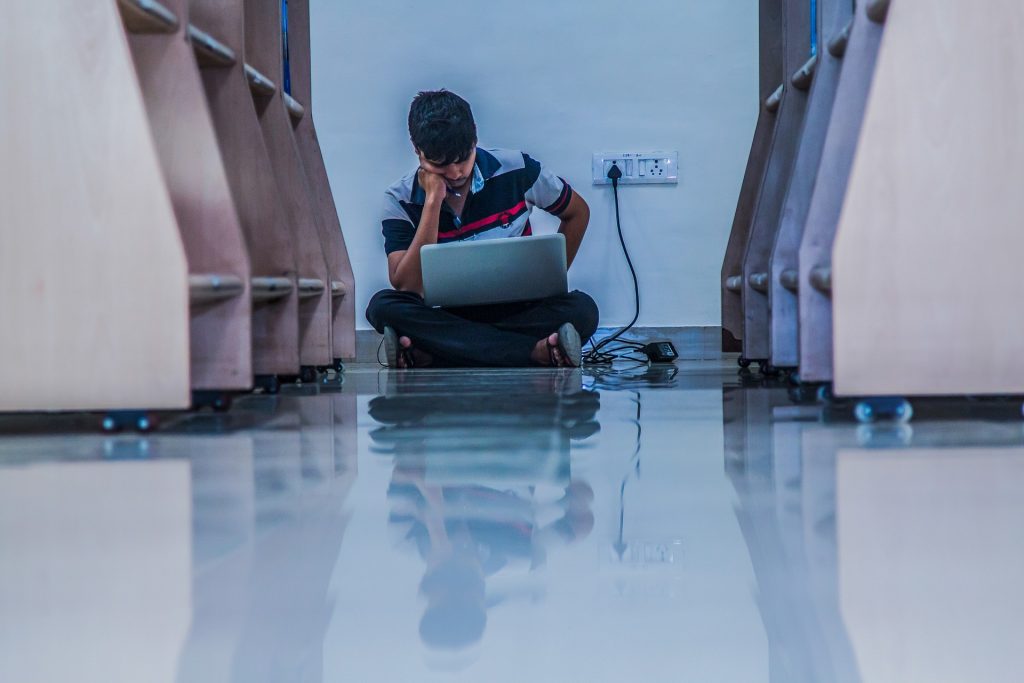Signs of Burnout in Students: How to Spot and Overcome Them

In today’s fast-paced and demanding academic environment, students often find themselves grappling with increasing pressure to excel in their studies. This relentless pursuit of success can sometimes lead to burnout — a state of physical, mental, and emotional exhaustion.
Burnout not only hampers academic performance but also negatively impacts overall well-being. Therefore, it is crucial to recognize the signs of burnout in students and take proactive measures to overcome them. This video aims to shed light on the signs of burnout and provide practical strategies to help students regain balance and thrive, according to experts.
Recognizing the Signs of Burnout
According to Queensland Health, burnout is a state of physical, mental, and emotional exhaustion caused by prolonged stress and overwhelming demands. It can manifest as physically (such as headaches, stomachaches, fatigues, frequent illness, changes in sleep and appetite), emotionally (feelings of helplessness, cynicism, dettachment, failure or self-doubt, and loss of motivation), and behaviorally (declining performance, withdrawal, isolation, procrastination, and emotional outbursts). Being aware of these indicators can help students identify burnout and take proactive steps to address it effectively.
Overcoming Burnout: Strategies for Students
- Seek Support
If you recognize the signs of burnout in yoruself, don’t hesitate to seek help and support from friends, family, teachers, and counselors. Sharing your concerns and discussing your challenges with the people you trust can provide you with some much needed emotional support and validation, as well as offer you more insight into solutions for overcoming burnout, says psychotherapist Natacha Duke. Making time for your relationships can provide a much-needed break from academic pressures, while connecting with those who share your experiences by joining support groups can also be beneficial.
- Practice Self-Care
According to the Harvard Business Review, prioritizing self-care is crucial for combating burnout and replenishing one’s physical and emotional energy. Thus, students are encouraged to adopt healthy habits such as getting enough sleep, eating a balanced diet, engaging in regular physical and social activity, and setting aside time for relaxation and hobbies. It may also help to try practices that have been proven to promote our well-being, like meditating, journaling, and enjoying nature. Whatever your self-care routine, what matters most is that you make space in your life for restful, positive time away from your work and studies.
- Manage Time Effectively
Good time management skills are another essential component to burnout recovery. Therapist Barrie Sueskind reccomends that students establish a realistic study schedule that includes breaks and downtime. Breaking tasks into smaller, manageable parts can also alleviate feelings of overwhelm. Time management techniques, such as the Pomodoro Technique, can enhance productivity and prevent burnout as well.
- Set Realistic Goals
Next, the experts at career counseling center Mind Tools reccomend that students struggling from burnout reasses if their goals are reaistic and attainable. Setting more achievable goals can help you establish a healthier work-life balance, as well as maintain a sense of accomplishment and prevent feelings of failure. By breaking larger goals into smaller milestones, students can track progress and experience a sense of satisfaction along the way.
- Learn to Cope With Stress
Students can explore various stress management and coping mechanisms to find what works best for them. According to wellness counselor Dr. Elizabeth Scott, some strategies that have proven to be effective include deep breathing exercises, meditation, yoga, journaling, and listening to music. There are also some slightly more advanced techniques you can try, such as Progressive Muscle Relaxation (PMR) and guided imagery, with the help of your school counselor.
- Rediscover Your Passion
Burnout often arises when students feel disconnected from their academic pursuits and lose sight of why they started in the first place, explains counselor Leah rockwell. So take time to reflect on why you’re doing what you’re doing to rediscover your passion for your studies. If you’re not clear on why you’re putting the energy into what you are, it’s easy to lack focus, motivation, and feel burnt out. Additionally, consider how your studies connect to your personal values, long-term goals, and the impact you wish to make in the world. Understanding the purpose behind your education can bring a renewed sense of meaning in your academic life.
In conclusion, recognizing and addressing burnout is essential for your well-being and academic success. By identifying the signs of burnout and implementing strategies to overcome it, you can begin to regain balance in your life, reignite your motivation, and cultivate a more positive learning experience for yourself.
So, Psych2Goers, what are your thoughts on this video? Did you find it helpful or valuable? If so, let us know with a comment, like, and subscribe! And if you’re interested in learning more about this topic, we also have a video on “7 Stages of Burnout: How Do You Compare?”
References:
- Queensland Government. (2021, Nov 22). “Signs you might be experiencing a burnout and how to regain balance in your life.” Darling Downs Health. https://www.darlingdowns.health.qld.gov.au/about-us/our-stories/feature-articles/signs-you-might-be-experiencing-a-burnout-and-how-to-regain-balance-in-your-life
- Cleveland Clinic (2023, Jun 5). 12 Ways To Recover From Burnout. Health Essentials. https://health.clevelandclinic.org/how-to-recover-from-burnout/
- Knight, R. (2015, Apr 2). How to Overcome Burnout and Stay Motivated. Harvard Business Review. https://hbr.org/2015/04/how-to-overcome-burnout-and-stay-motivated
- Mind Tools. (2023). Recovering From Burnout. https://www.mindtools.com/a487gum/recovering-from-burnout
- Scott, E. (2023, Feb 9). Top 10 Stress Management Techniques for Students. VeryWell Mind. https://www.verywellmind.com/top-school-stress-relievers-for-students-3145179
- Rockwell, L. & Abulhosn, R. (2022, Jan 4). College Burnout: Symptoms, Causes, & How to Deal With It. Choosing Therapy. https://www.choosingtherapy.com/college-burnout/




Responses